A Comprehensive Guide to Ceramic Balls: Advantages and Applications
In the world of engineering and manufacturing, ceramic balls are becoming key components in many industries. They're really useful because they can handle high temperatures, are hard, and don't expand much with heat. In this blog, we'll explore different kinds of ceramic balls like Alumina Oxide, Zirconia, Ruby Sapphire, Silicon Nitride, and Silicon Carbide. We'll look at what they do and why they're so important in today's technology.
Alumina Oxide Balls: Perfect for High Heat
Alumina Oxide ceramic balls are great for really hot temperatures - they can handle up to 3180 °F!
Super Strong and Flexible
- Where They're Used: You'll find these balls in chemical and down-hole pumps, valves, bearings, gages, and flowmeters.
- What Makes Them Special: These ceramic balls are super hard and don't wear out easily. Plus, they can handle the heat in furnaces without any trouble, which is perfect for jobs with high temperatures.
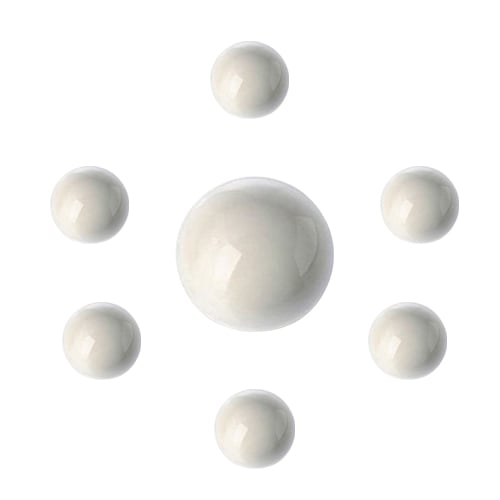
Zirconia Balls: Tough Under Pressure
Zirconia ceramic balls are known for being really precise and coming in various sizes, making them super useful in controlling how fluids flow.
Great at Handling Stress
- Main Use: They're often used as check valves in systems that control flow. They're great at keeping things running smoothly and accurately.
- Cool Feature: What's special about these ceramic balls is something called 'transformation toughening.' This means they get stronger in the spots where there's stress, stopping cracks from getting worse.
Why They're Extra Tough
- Stress Resistance: This 'transformation toughening' trait is what makes Zirconia balls unique. They toughen up under pressure, which stops cracks in their tracks.
- Lasts Longer: Thanks to this toughening effect, Zirconia ceramic balls are really durable. They stand up to lots of stress and pressure, which is perfect for systems that need to control the flow of liquids or gases without breaking down.
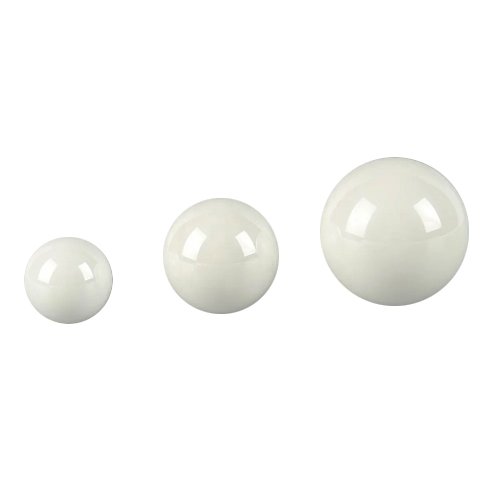
Ruby Sapphire Balls: Strong and Accurate
Synthetic sapphire ceramic balls are really hard yet light, perfect for jobs where you need to avoid rust and keep electricity from passing through.
Precision and Reliability
- Uses: Ideal for bearings, as wear points in instruments, probes in coordinate measuring machines, and floats in flowmeters requiring precise diameter tolerance.
- Heat Response: These ceramic balls have a coefficient of thermal expansion just 25% of most metals.
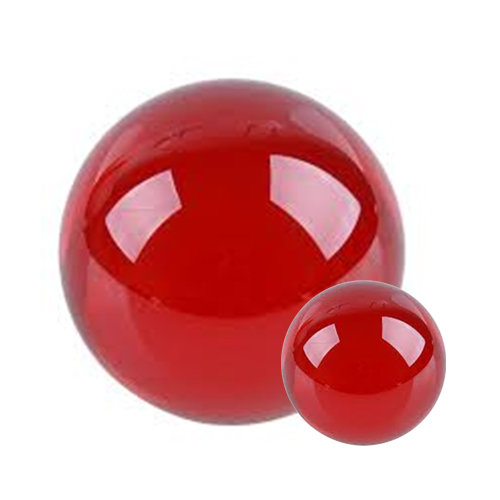
Silicon Nitride Balls: A Top Pick for Bearings
Silicon nitride balls are a primary choice for bearings due to their exceptional properties and performance under thermal stress.
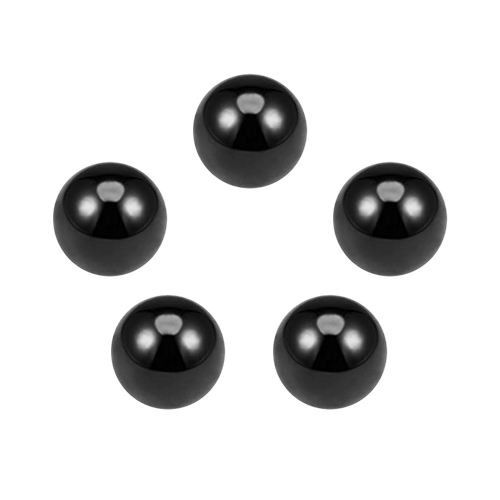
Better Performance for Bearings
- Handles Heat Well: Their low coefficient of thermal expansion ensures consistent performance and minimizes stress in bearings across temperature variations.
- Less Friction: These ceramic balls significantly lower friction, leading to decreased heat generation and lesser reliance on cooling systems, thereby improving bearing efficiency.
Silicon Nitride Bearings in Industry
- High-Speed and Load Capacity: Ideal for applications that demand high-speed operation and can withstand heavy loads, making them versatile for a wide range of industrial uses.
- Lower Lubrication Needs: The minimal lubrication requirement is a key advantage, especially in environments where maintenance is challenging or contamination is a concern.
- Longevity: Marked by increased durability, these high-speed bearings exhibit reduced wear and tear, extending their operational life.
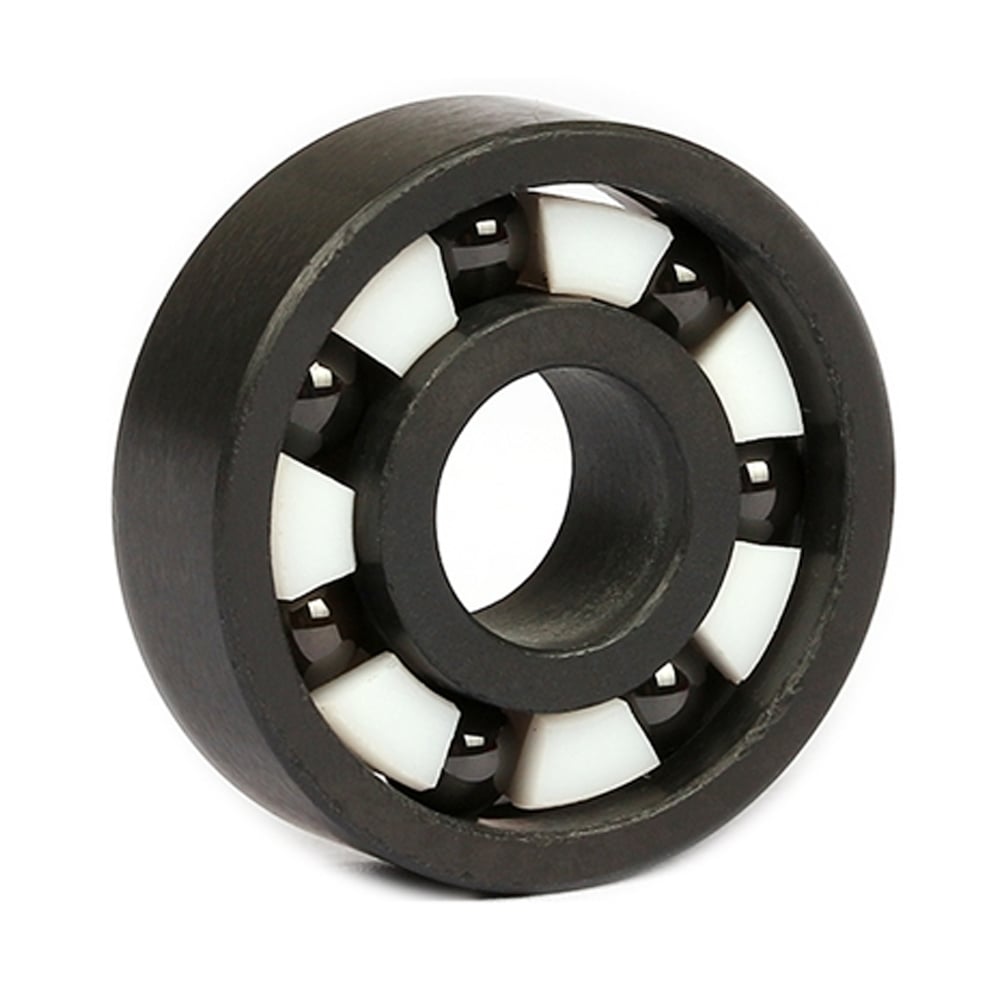
Silicon Carbide Balls: Built to Last
Silicon Carbide (SiC) ceramic balls are notable for their exceptional strength and durability, designed for challenging applications where traditional materials just won't work.
Why They're Special
- Exceptional Hardness: SiC is incredibly hard, just below diamond, offering superior wear resistance.
- Handles Heat Well: These ceramic balls can take heat over 1000°C, ideal for high-temperature uses.
- Lightweight: Lower density than many metals, enhancing efficiency in weight-sensitive applications.
- Chemical Stability: Resists a wide range of chemicals, perfect for harsh environments.
- Electrical Properties: Exhibits semiconductor behavior, adaptable for various uses.
Where They're Used
- In Bearings: SiC balls make bearings last longer, reduce friction, and work well in hot, harsh conditions. For more details, please click Silicon Carbide bearings.
- Aerospace: Perfect for space stuff because they're light and can handle extreme temperatures.
- Energy Sector: Useful in high-temperature energy systems.
- Making Semiconductors: Their electrical properties help in making precise and stable semiconductor parts.
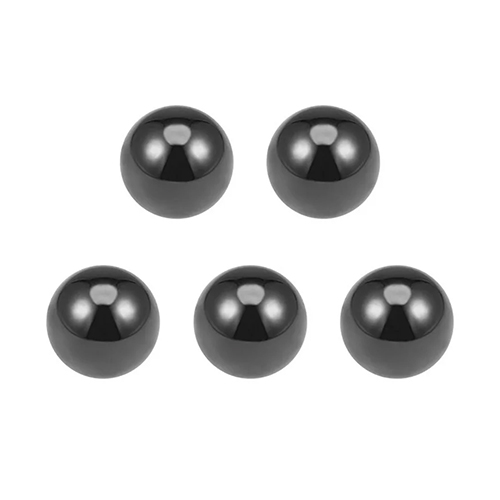
Comparative Overview: Types of Ceramic Balls
|
Type |
Alumina Oxide Balls |
Zirconia Balls |
Ruby Sapphire Balls |
Silicon Nitride Balls |
Silicon Carbide Balls |
|
Material |
Alumina Oxide (Al2O3) |
Zirconium Oxide (ZrO2) |
Synthetic Sapphire (Corundum) |
Silicon Nitride (Si3N4) |
Silicon Carbide (SiC) |
|
Key Properties |
High-temperature resistance, hardness, abrasion resistance |
High resistance to crack propagation, transformation toughening |
Hardness, lightness, corrosion-resistance, electrical non-conductivity |
Low thermal expansion, minimal heat absorption |
Extreme hardness, thermal resistance, low density |
|
Primary Uses |
Chemical pumps, down-hole pumps, valves, bearings, gages, flowmeters |
Check valves in flow control systems, precision bearings |
Bearings, probes in measuring devices, wear points in instruments |
Bearings, particularly in high-temperature and corrosive environments |
High-performance bearings, aerospace, energy sector |
|
Special Features |
Can withstand temperatures up to 3180 ºF |
Becomes stronger under stress, low thermal conductivity |
Coefficient of thermal expansion 25% of most metals |
Reduced friction in bearings, high-speed and high-load capacity |
Resistant to corrosion, efficient in extreme conditions |
Conclusion
In many industries, ceramic balls are key for improving how things work, from handling high heat to aiding precise instruments. They're becoming increasingly vital for technological progress. At LILY Bearing, you'll find a wide selection of sizes available, plus we can customize them to fit your specific requirements.
Keep Learning








